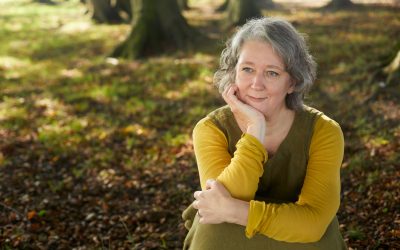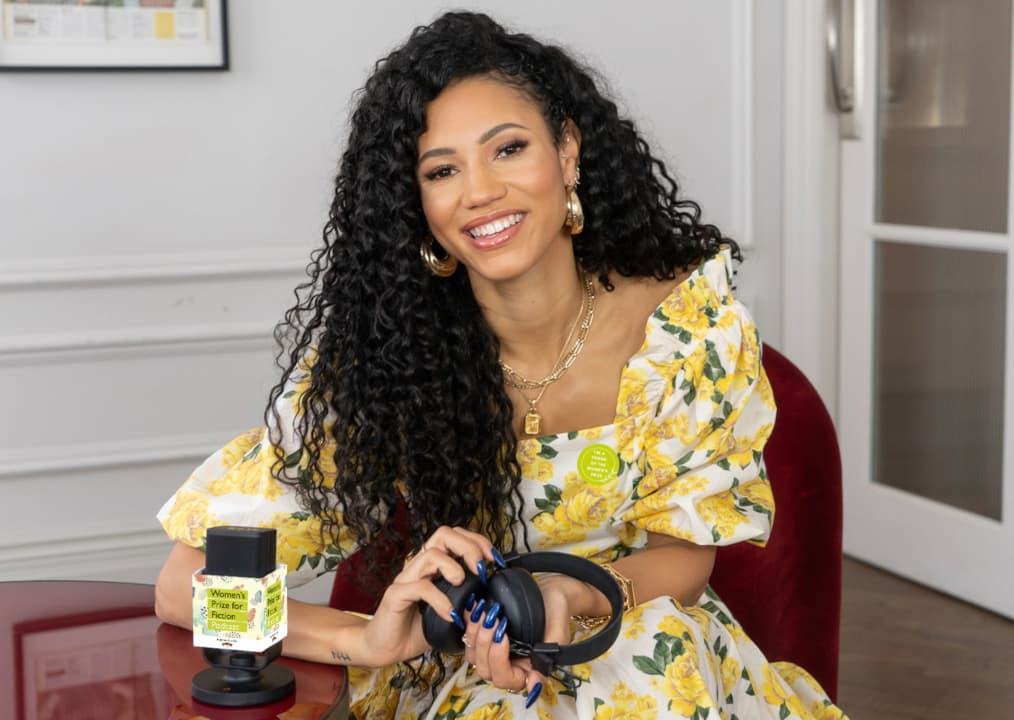
How to pitch your novel
Preparing to Pitch: The novelist salesperson “Can you summarise your novel in a sentence or two,” my marketer, Eloise asks,…


We caught up with esteemed author and Discoveries 2022 judge Ayisha Malik to discuss what she’s looking for with in Discoveries submissions, her own journey to publication, and to hear her tips for those who want to submit their work.
Interested in writing your own story? Learn more about our Discoveries writing development programme, designed to support aspiring women writers in publishing their first novel.
Before becoming a full-time writer, you worked as a publicist for Penguin Random House. Did you always want to work in the world of books?
I always wanted to be a writer and I was told during my MA in creative writing that the best way to get published was to get a job in publishing. Even if it’s just as a cleaner.
When did you know that you wanted to be a writer?
At a very young age. But it felt like more of a pipe dream. I don’t think I wanted to do anything else. I’m certainly not equipped to do anything else.
Your debut novel Sofia Khan is Not Obliged has been called the ‘Muslim Bridget Jones’ – you’ve spoken before about how the lack of Muslim representation in literature was one of the reasons you wrote the novel. Can you tell us a bit more about your experience of writing your first novel and your initial path to publication?
I was one of the lucky ones in that I managed to get the first book I wrote published. It took a while to write (the luxury of not having a contract) and it was a huge learning curve for me in terms of understanding structure, pacing – all that editorial stuff that writers aren’t taught but learn along the way. Working for Cornerstones, a literary consultancy, helped me a lot with that. After signing with my brilliant agent, Nelle Andrew, it took a few months to get a publisher. So much of it is timing, who’s looking for what and good (or bad) luck.
Your latest novel This Green and Pleasant Land follows accountant Bilal Hasham as he undertakes his mother’s dying wish: for him to return to his English village and build a mosque. Where did you find the inspiration for this book?
I don’t think inspiration comes in any one way, but this idea struck me quite vividly. I’ve been based in London my whole life and my previous books were quite London-centric, but Brexit taught us many things, and one of them was that London is a bubble. So, I wanted to move out of that and base a book in a quintessential English setting, bringing in a rather controversial idea. I like thinking about the inevitability of change and the tension and conflict (and eventual – hopefully – acceptance) that comes with that.
Your stories always have a brilliant character at their heart. What comes to you first: the premise or the lead character?
“Character, for me, develops over drafts”
It’s often the premise with a type of character attached. Character for me develops over drafts – but I generally know the core of who they are before I begin.
Who is your favourite fictional character?
How to choose! Bathsheba Everdene in Thomas Hardy’s Far from the Madding Crowd is a favourite of mine. As was Dorothea Brooke – I’m re-reading Middlemarch right now and it’s so interesting the way your perception of character changes over time, depending on when you read the book.
Which book do you always recommend to others?
Heartburn by Nora Ephron. And obviously anything by Austen. Also, I read anything by David Nicholls who is one of my favourite contemporary British writers.
We’re so pleased to have you on board as a judge for Discoveries 2022 – do you have any advice for aspiring authors getting ready to submit to the prize?
“Check carefully for typos!”
Check carefully for typos! Think about what makes your story unique – why it’s different to anything that’s out there already. Why do you feel you’re the right person to tell this story?
What will you be looking for from entrants when reading for Discoveries?
“… unique style can’t be taught…”
For me, it’s voice and style that captivates me. Something that makes me laugh is always a good sign – or makes me think, question, wonder. But a unique style can’t be taught, and it’s that sort of talent that makes me sit up.
Discoveries is designed to inspire as many emerging authors as possible to enter and to help writers craft their submissions. The Women’s Prize Trust, Audible, Curtis Brown Literary Agency and the Curtis Brown Creative writing school will curate a programme of free content to run throughout the submissions window, including writing tips and insights into the agenting and publishing process, practical advice and inspiration from judges, Women’s Prize for Fiction alumna and publishing professionals.
Sign up to our newsletter to be the first to hear about our Discoveries programme!

Preparing to Pitch: The novelist salesperson “Can you summarise your novel in a sentence or two,” my marketer, Eloise asks,…

Jacqueline Crooks’ debut novel Fire Rush was shortlisted for the Women’s Prize for Fiction and has been described by the…

Not sure how to polish up your novel (or Discoveries entry!) for submission? Here are some top insights from four…

Claire Fuller’s marvellous novel Unsettled Ground was shortlisted for the 2021 Women’s Prize for Fiction. We caught up with Claire…
Tune into host Vick Hope and a line-up of incredible guests on our weekly podcast full of unmissable book recommendations.
